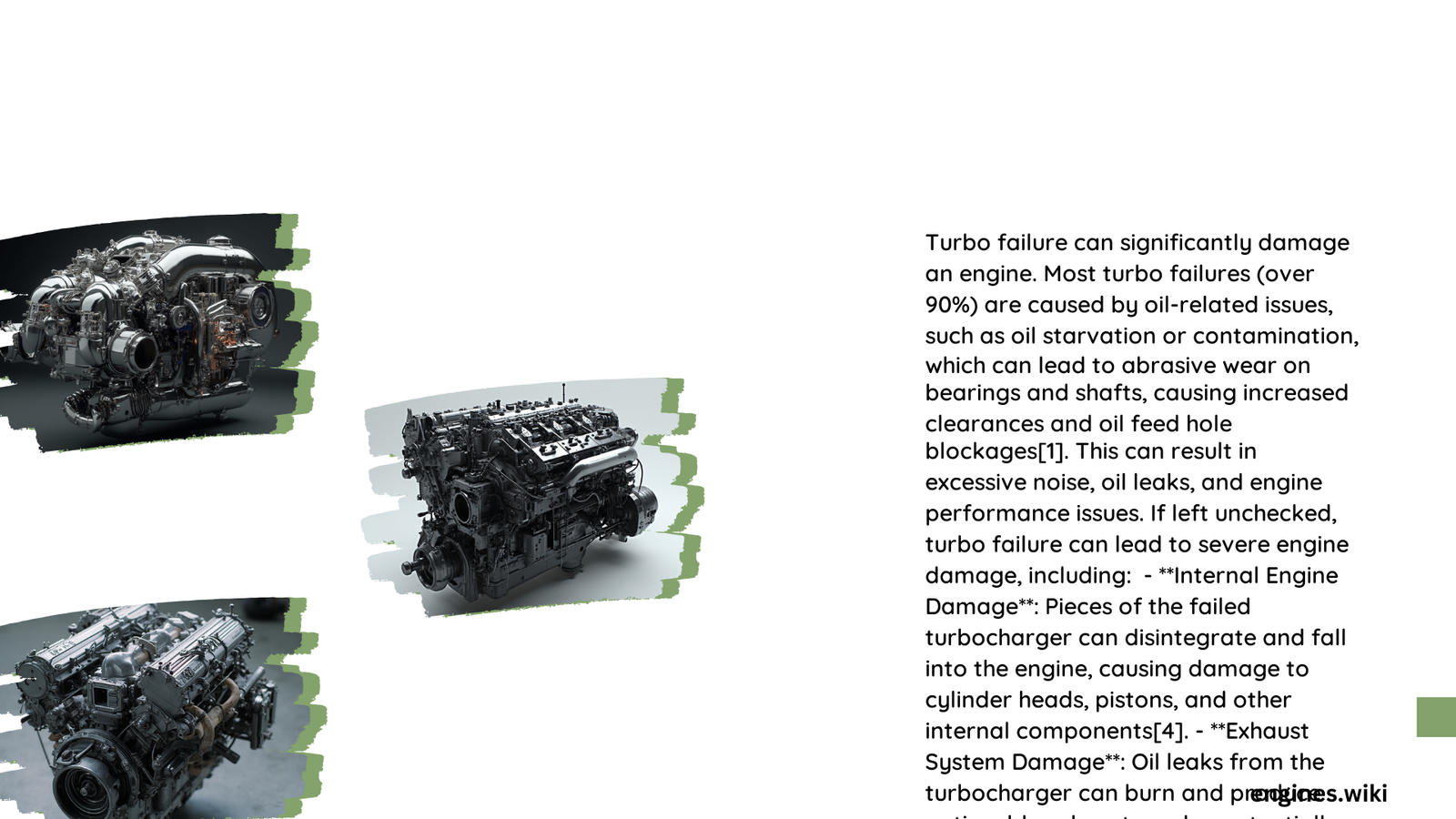Turbochargers, while enhancing engine performance, can potentially lead to engine damage if not properly managed. These forced induction systems subject engine components to increased mechanical and thermal stresses. While turbochargers don’t inherently destroy engines, they do introduce additional complexities and potential failure points. Proper installation, maintenance, and operation are crucial to prevent turbo-related engine damage. This article explores the impact of turbochargers on engine longevity, reliability, and performance.
What Are the Mechanical Stresses Imposed by a Turbocharger?
Turbochargers subject engine components to significant mechanical stresses, which can lead to potential engine damage if not managed properly:
- Centrifugal Forces: The high-speed rotation of turbocharger components, particularly the compressor and turbine wheels, generates substantial centrifugal loads.
- Foreign Object Damage: Particles entering the turbocharger can cause mechanical damage to the compressor or turbine blades, leading to rotor imbalance and bearing wear.
- Increased Pressure: The boosted intake air pressure puts additional stress on engine internals, including pistons, connecting rods, and cylinder heads.
How Do Thermal Stresses Affect Turbo Engines?

Thermal stresses are a significant concern in turbocharged engines:
- High Exhaust Gas Temperatures: Excessive temperatures can damage the turbine wheel and axle, potentially leading to oil burning and ‘coking’.
- Temperature Thresholds: Turbine components can face temperatures up to 1041 K (768°C), which is beyond the safe operating range for many materials.
- Heat Soak: After engine shutdown, residual heat can cause oil coking in the turbocharger bearings, leading to premature wear.
What Are the Reliability Metrics of Turbo Engines?
Understanding the reliability of turbocharged engines is crucial:
- Failure Rates:
- Mechanical failures (bearing wear, rotor imbalance)
- Thermal failures (high exhaust gas temperatures)
-
Foreign object damage
-
Common Points of Failure:
- Turbine and compressor wheels
- Bearings
-
Sealing links
-
Average Lifespan:
- Well-maintained turbochargers: 100,000 to 200,000 kilometers
- Generally shorter than naturally aspirated engine components
What Are the Risks of Turbocharger Overheating?
Overheating poses significant risks to turbochargers:
| Temperature Range | Potential Damage |
|---|---|
| Above 800°C | Material degradation begins |
| 900°C and above | Critical failure risk |
- Inadequate Cooling: Can lead to oil consumption, power loss, and exhaust smoke
- Exhaust System Issues: Congestion in the exhaust pipe can create high pressure in the turbine housing, causing unauthorized wear
How Does Turbo Installation Impact Engine Wear?
Turbocharger installation affects engine wear in several ways:
- Specific Wear Patterns:
- Increased wear on bearings and seals
-
Higher stress on turbine and compressor wheels
-
Maintenance Considerations:
- More frequent servicing required
-
Higher maintenance costs due to complexity
-
Oil-Related Issues:
- Increased oil consumption
- Risk of oil coking in bearings
Can Proper Maintenance Prevent Turbo-Related Engine Damage?
Proper maintenance is crucial for preventing turbo-related engine damage:
- Regular Oil Changes: Use high-quality, turbo-specific oil and change it frequently
- Cooling System Maintenance: Ensure the cooling system is functioning optimally
- Warm-Up and Cool-Down: Allow proper warm-up before driving and cool-down before shutting off
- Air Filtration: Use high-quality air filters and replace them regularly
- Boost Control: Avoid excessive boost pressures, especially in modified engines
What Are the Long-Term Effects of Turbocharging on Engine Longevity?
Long-term effects of turbocharging on engine longevity include:
- Increased Wear: Higher temperatures and pressures can accelerate wear on engine components
- Potential for Catastrophic Failure: If not properly maintained, turbo failure can lead to severe engine damage
- Reduced Engine Life: In some cases, turbocharged engines may have a shorter overall lifespan compared to naturally aspirated counterparts
- Performance Degradation: Over time, turbo efficiency may decrease, affecting overall engine performance
In conclusion, while turbochargers don’t inherently destroy engines, they do introduce additional complexities and potential failure points. Proper installation, maintenance, and operation are crucial to prevent turbo-related engine damage and ensure the longevity of turbocharged engines.
